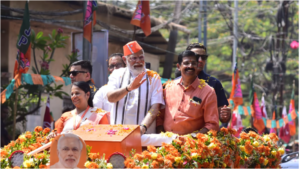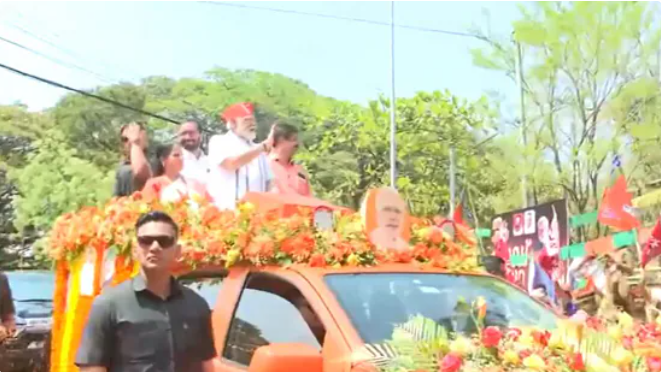Muslim Candidate Absence Kerala Controversy Prime Minister Visit: The recent controversy surrounding the absence of a Muslim candidate during Prime Minister Narendra Modi’s visit to Kerala has ignited a heated debate across political circles.  for more info:
for more info:
Backdrop of the Controversy: The controversy unfolded during Prime Minister Modi’s second visit to Kerala within a week, ahead of the state assembly elections. Kerala, known for its vibrant political landscape and diverse demographics, often becomes the focal point of national attention during elections. The absence of a Muslim candidate from the BJP’s campaign entailed significant repercussions, triggering a row that reverberated across the state. Muslim Candidate Absence Kerala Controversy Prime Minister Visit.
Denial of Permission to Dr. M. Abdul Salam: M. Abdul Salam, the BJP candidate from Malappuram, alleged that he was denied permission to accompany Prime Minister Modi during a roadshow in Palakkad. This development drew sharp criticism from various quarters, with accusations leveled against the BJP for sidelining a prominent Muslim candidate. Dr. Salam’s exclusion from the campaign trail underscored broader concerns regarding minority representation within the BJP’s electoral strategy.
CPI(M)’s Allegations and Response: The CPI(M) wasted no time in seizing upon the controversy, accusing the BJP of not only insulting Dr. Salam but also marginalizing the Muslim community in Kerala. The party’s leadership condemned the BJP’s actions as a deliberate attempt to exclude minority voices from the political discourse. The incident further exacerbated tensions between the two rival parties, setting the stage for intensified campaigning in the run-up to the elections.
Implications for Minority Representation: The controversy reignited debates surrounding minority representation in Indian politics, particularly within the BJP. Critics argue that the party’s failure to field Muslim candidates in significant numbers reflects a broader trend of underrepresentation and marginalization. In Kerala, where Muslims constitute a substantial portion of the population, the absence of Muslim candidates from the BJP’s electoral roster has raised questions about the party’s commitment to inclusive governance.
BJP’s Response and Defense: In response to the allegations, the BJP maintained that Dr. Abdul Salam’s absence from the roadshow was due to logistical constraints and scheduling conflicts. The party reiterated its commitment to fostering inclusivity and diversity within its ranks, citing instances of Muslim representation in various leadership roles across states. However, skeptics remain unconvinced, viewing the incident as symptomatic of deeper-rooted issues within the BJP’s approach to minority outreach.
Broader Socio-Political Context: The Kerala controversy surrounding Dr. Salam’s exclusion must be viewed within the broader socio-political context of Kerala. The state has a rich history of communal harmony and pluralism, with diverse religious and cultural traditions coexisting for centuries. However, the political landscape has witnessed polarization in recent years, with parties vying for supremacy amidst heightened communal tensions. Against this backdrop, the BJP’s electoral strategy and messaging assume heightened significance, shaping perceptions and influencing voter behavior.
Challenges Ahead: As Kerala Controversy braces for the upcoming assembly elections, the controversy over Dr. Abdul Salam’s exclusion underscores the challenges confronting political parties in navigating complex socio-political dynamics. The BJP faces the daunting task of balancing its ideological agenda with the imperative of broad-based representation, especially in states with diverse demographics like Kerala. Meanwhile, the CPI(M) and other opposition parties must capitalize on such controversies to mobilize support and galvanize their electoral base.
The Kerala controversy over the absence of a Muslim candidate during Prime Minister Modi’s visit to Kerala represents a microcosm of larger socio-political trends shaping Indian democracy. It highlights the delicate balance between identity politics, electoral strategy, and the imperative of inclusive governance. As Kerala prepares to go to the polls, the incident serves as a stark reminder of the challenges and opportunities inherent in the democratic process, urging stakeholders to uphold the principles of diversity, pluralism, and representation. latest news





